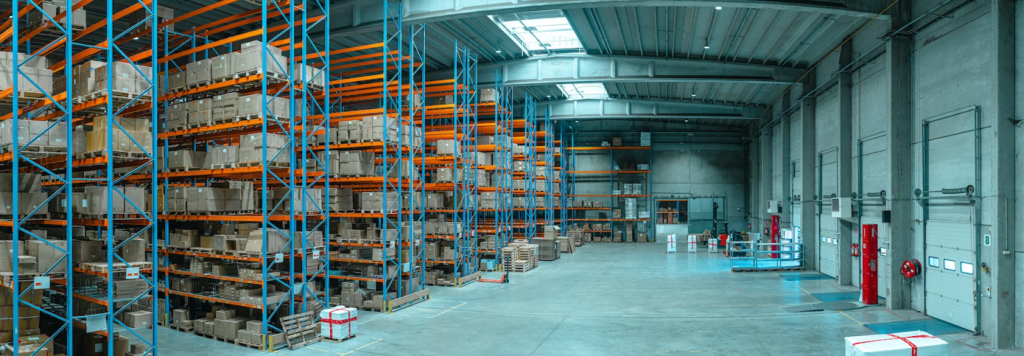
In today’s business world, where customer expectations are constantly evolving, companies must continuously seek ways to enhance their operations and stay competitive. One often overlooked but crucial aspect is the warehouse, which serves as the backbone of any supply chain. Warehouses are not merely storage spaces; they are pivotal in facilitating seamless logistics and ensuring timely delivery of products to customers. In this article, we delve into the significant impact that improving your warehouse can have on the overall growth of your business.
Enhanced Operational Efficiency
A well-optimized warehouse can significantly boost operational efficiency, leading to improved overall performance. Implementing advanced inventory management systems allows for real-time tracking of stock levels, reducing the risk of stockouts or overstock situations. Automated processes, such as robotic picking and packing, can streamline order fulfillment, minimizing errors and reducing the time it takes to process orders. This increased efficiency translates to faster order processing and, consequently, shorter delivery times. Customers today demand swift and accurate deliveries, and an efficient warehouse is key to meeting these expectations.
Furthermore, an organized warehouse layout can optimize the flow of goods, reducing unnecessary travel time for employees and machinery. By minimizing idle time and maximizing the utilization of space, businesses can handle a higher volume of orders without compromising on accuracy and speed. This efficiency not only satisfies customer demands but also positions the business to handle increased order volumes as it grows.
Improved Customer Satisfaction
Customer satisfaction is a cornerstone of business success, and the warehouse plays a pivotal role in meeting and exceeding customer expectations. A well-managed warehouse contributes to accurate order fulfillment, reducing the likelihood of errors in shipments. Timely and error-free deliveries enhance customer trust and loyalty, crucial factors in today’s competitive market.
Moreover, a strategically organized warehouse enables faster order processing, leading to shorter delivery times. In an era where next-day or even same-day delivery is becoming the norm, businesses that can expedite order fulfillment gain a significant competitive edge. Customers appreciate not only the speed of delivery but also the reliability of consistent service. By enhancing the efficiency of your warehouse, you are directly contributing to a positive customer experience, which, in turn, fosters customer loyalty and drives repeat business.
Warehouse Maintenance for Long-Term Success
An often underestimated aspect of warehouse management is maintenance. A well-maintained warehouse is a prerequisite for sustained success. You can use Tiger Material Handling or other similar providers for regular equipment maintenance, including conveyor systems, forklifts, and other machinery. This will ensure their longevity and reduce the risk of breakdowns that can disrupt operations. Proactive maintenance schedules can identify potential issues before they escalate, preventing costly downtime.
Additionally, a clean and organized warehouse environment not only promotes safety but also improves overall efficiency. Employees can navigate the space more easily, reducing the likelihood of accidents and minimizing disruptions. Regular cleaning and organization also contribute to the longevity of inventory by preventing damage and deterioration.
Investing in the training of warehouse staff on proper maintenance procedures and safety protocols is equally important. Well-trained personnel can identify potential issues early on, maintaining a smooth and safe workflow. By prioritizing warehouse maintenance, businesses can avoid costly repairs, reduce downtime, and ensure the long-term reliability of their logistics infrastructure.
Cost Optimization Through Technology Integration
In the pursuit of growth, businesses often face the challenge of balancing expansion with cost control. The integration of technology in warehouse operations can offer a solution to this dilemma. Automated systems, such as barcode scanning, RFID tracking, and warehouse management software, can optimize processes and minimize the need for excessive manual labor.
Implementing technology-driven solutions not only enhances accuracy but also reduces the likelihood of errors that can result in financial losses. Real-time data provided by these systems enables better decision-making, allowing businesses to identify areas for improvement and optimize their overall supply chain. Additionally, the reduction in manual labor requirements allows businesses to allocate resources more efficiently, potentially lowering operational costs.
Scalability and Flexibility for Future Growth
A well-improved warehouse is not only efficient in the present but also scalable for future growth. The ability to adapt to changing business needs and increased order volumes is crucial for long-term success. Implementing scalable warehouse management systems and flexible storage solutions allows businesses to expand their operations without major disruptions.
Scalability also extends to the workforce, where cross-training employees for various warehouse tasks can ensure flexibility in staffing. This adaptability is particularly valuable during peak seasons or unexpected spikes in demand. By investing in scalable solutions, businesses position themselves to navigate growth seamlessly, without the constraints that poorly optimized warehouses might impose.
Sustainable Warehousing Practices
As environmental concerns continue to gain prominence, adopting sustainable practices in warehouse operations is not just a moral imperative but a strategic choice. Green warehouse initiatives, such as energy-efficient lighting, eco-friendly packaging, and waste reduction programs, not only contribute to a positive corporate image but can also result in cost savings over time.
Sustainable practices go beyond the warehouse walls and extend to the entire supply chain. Partnering with suppliers and carriers who share a commitment to sustainability can further enhance the eco-friendly footprint of your business. Consumers are increasingly prioritizing environmentally responsible companies, and a commitment to sustainability can be a powerful differentiator in the market.
The warehouse is a linchpin in the success and growth of any business. By investing in the optimization of warehouse operations, businesses can achieve enhanced efficiency, improved customer satisfaction, and long-term sustainability. Whether through technology integration, maintenance protocols, or scalable solutions, the benefits of an improved warehouse extend far beyond the physical storage of goods. As businesses evolve to meet the demands of the modern market, the warehouse stands as a cornerstone for success, providing the foundation for growth and a competitive edge in the ever-changing business landscape.













